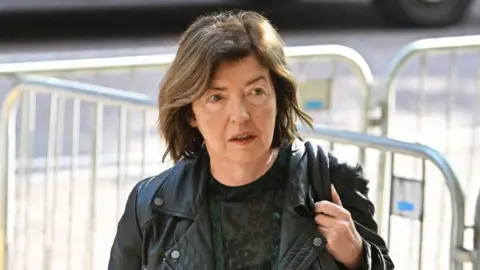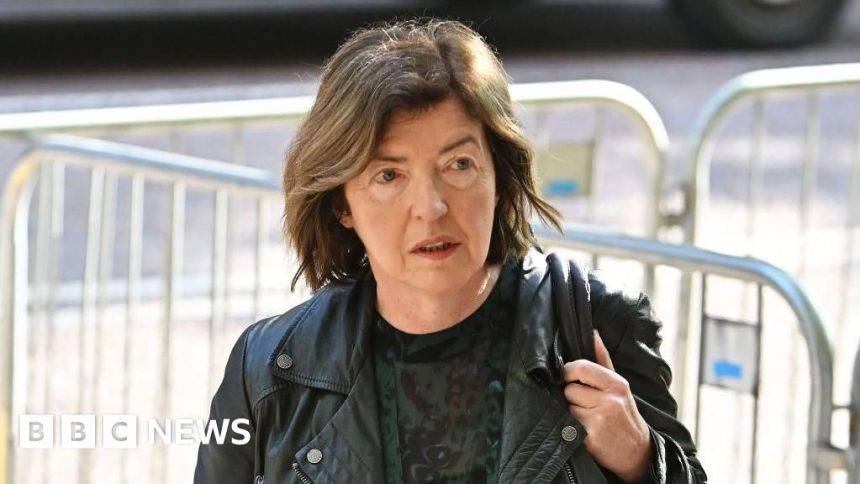Why finding out about Sue Gray’s salary really matters
 Getty Images
Getty ImagesI want to explain how we brought you the story about the salary of the prime minister’s chief of staff, why we did, and why it matters.
On Sunday, I was approached with confidential information by a government insider.
That information was Sue Gray’s new salary, £170,000 a year, and a deep sense of anger about her pay, her influence and a perception others in government were badly treated and underpaid.
As a salary, £170,000 is many times higher than the national average, but considerably less than plenty of people, some in the public sector and many in the private sector, would earn in a position of equivalent seniority.
Like many people in the public sector, her salary will in time be published anyway.
And full disclosure – mine is too.
But this story, at its crux, is not about her salary per se.
It is about the levels of upset and anger – fair or otherwise – about her and her role at the top of government.
That is what motivated the person who tipped me off – at considerable professional risk – to tell me what I am now telling you.
And I know from other conversations I have had – and members of our BBC team have had – that this person is far from alone.
And that tells you something about the fractious relationships among some at the top of government, less than three months after Labour won the election.
And that matters.
I was first tipped off at the weekend and I had not gone looking for this information, it found me.
My source chose to tell the BBC, knowing that if we could corroborate and verify the information – and a wider sense of anger – the range of our programmes on television and radio and news articles here online would take the news to a wide audience.
Our team, led by me, chief political correspondent Henry Zeffman and others, sought to verify and corroborate what I had been told.
As journalists, we have to sceptical about where information is coming from, its accuracy and why we are being told it – and seek to explain to you what we know and do not know, and the motivations of those telling us stuff.
And we should always calibrate the breadth and depth of – in this instance – anger and frustration and put it in context.
Over a few days, we established from other, independent sources that what I had been told was accurate.
Crucially, it was also very much apparent our source was far from alone in their sense of grievance about Ms Gray.
When I spoke to several senior figures in government with the information we had pulled together, they did not dispute the central tenets of our story.
We were also able to bring you the wider context of salaries among government staff and how this government’s approach to it is different from the governments that went before.
There are plenty in government now who are angry and upset that we have reported this and feel it is deeply unfair to Ms Gray.
She is, after all, a figure without her own public platform, she can not come out and talk to me in front of a camera, as a politician might.
Her allies feel there is a nasty and vindictive campaign from some to discredit her – and others worry deeply stories like this could put people off considering a job in government out of fear their name could be kicked around in public.
But the central truth here is there is a row at the top of a very new government – and it is important I tell you about that.
It is my job to try to bring you as clear a sense as I can of what is really going on at the heart of government, warts and all.
And that is what I – and our wider team – have tried to do here.







